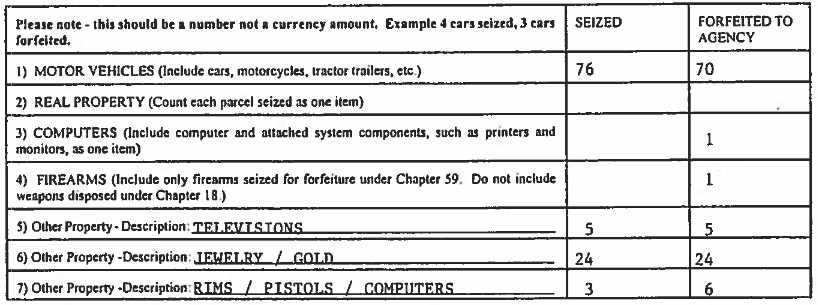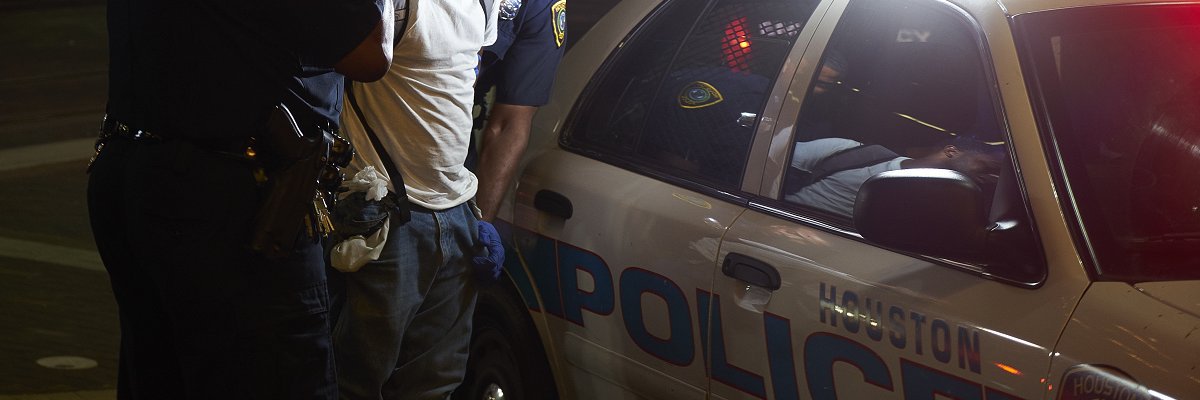Earlier this week, Todd Feathers introduced us to Equitable Sharing, and how police work with the DOJ to get around some state’s restrictions on civil forfeiture funds. But what about states where those restrictions aren’t so strict? Houston PD provided a detailed look at police property seizures in Texas, and it isn’t pretty.
While local agencies are less uniform in their documentation of seizures made under state law, the Houston Police Department provided MuckRock with annual reports that illuminate some of the differences between state and federal seizures.
In Texas, police departments are allowed to work out their own agreements with state attorneys to determine what share of seizure profits they retain.
The HPD splits its profits with the Harris County District Attorney’s office, and it seizes significantly more money and property under state law than through the Equitable Sharing program.
In 2013, the HPD took in more than $6 million under state law as opposed to $3 million with the help of the DOJ.
Those figures represent only the money HPD received during the fiscal year, not the total value of the property they seized.
The department actually took possession of more than $14 million worth of currency and property during the fiscal year, according to the documents. Most of that money is held in limbo pending the resolutions of forfeiture proceedings, where the owner must prove his or her property was not used in, or the result of, a crime.

During the five year period covered in the reports - fiscal year 2009 to fiscal year 2013 - the HPD seized at least 631 cars, 135 pieces of jewelry, 63 televisions, seven computers, two guns, and one gift card.
All of that property was, ostensibly, either used in the commission of a crime or was bought using the proceeds of criminal activity.

In order for a property owner to reclaim their seized property – that gift card, for instance – they must hire a lawyer and prove before a court that they obtained it legally. Which is exactly why the majority of seized assets stay that way. Is that gift card worth legal fees?
Take a look at the docs yourself on the request page, and as always, let us know if you find anything at info@muckrock.com.
Image via Wikimedia Commons and is licensed under CC BY 4.0




